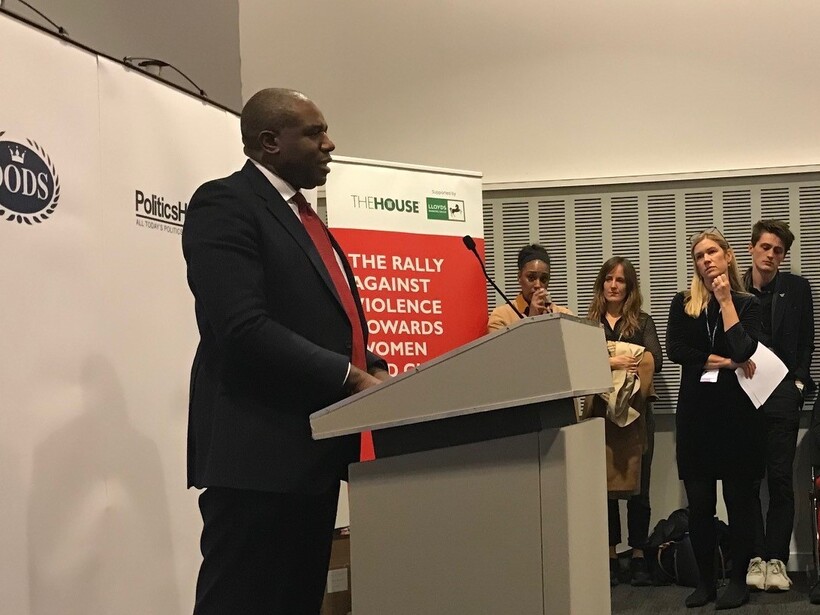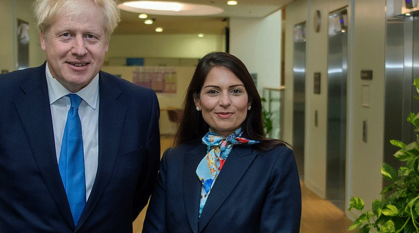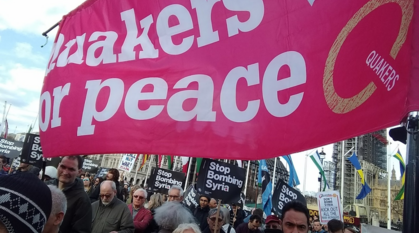Reflections from Labour and Conservative party conferences
Labour and Conservative party conferences were very different this year. Grace Da Costa shares some reflections from a Quaker perspective.

On Sunday 25 September I packed up my laptop, dusted off my smart trousers, and headed up to Liverpool for Labour party conference. The following Sunday, I travelled to Birmingham to rub shoulders with the Conservatives.
The aim of attending the conferences was to gather intelligence on what the two main parties were planning, to build relationships, and to promote Quakers and their priorities.
Climate clashes
At both conferences, there were many fringe sessions on the climate crisis for me to choose from. Each party's environment network had a whole programme of events.
Quakers in Britain campaign for finance to help the poorest people around the world who are suffering the worst impacts of climate breakdown but have done least to cause it. Because of this, I raised the issue of finance for loss and damage at as many events as possible.
Labour's Shadow Climate Change Minister, Kerry McCarthy MP, promised to make it a priority ahead of COP27. The Conservative Development Minister, Vicky Ford MP, refused to talk about it.
The leaders of both parties seemed committed to tackling the climate crisis, but they had different solutions matching their opposing ideologies. The Conservatives spoke of addressing the climate crisis via market forces and technology, whereas Labour pledged a state energy company and investment fund.
Tough on crime
Quakers are staunch supporters of human rights because of their belief in 'that of God in everyone' and testimony to equality. The Conservative leadership is taking a very hard line on human rights, immigration and crime, and their members and supporters appear to back this.
They want to press on with the Rwanda deportation plan and remove the right to asylum for people arriving in small boats. They may try to withdraw the UK from the European Convention on Human Rights. They will continue with the Public Order Bill and a punitive rather than preventative approach to drug and knife crime.
The Labour leadership could provide a much stronger alternative vision in this area, in my opinion and that of many human rights campaigners I spoke to. A Labour spokesperson at an excellent fringe event on human rights organised by Amnesty and Liberty said he didn't know what Labour would do on human rights if it got into power.
Although Labour opposes the Rwanda deportation plan, Shadow Chancellor Rachel Reeves recently urged the government to speed up deportations. And Shadow Home Secretary Yvette Cooper spoke of a "crackdown on criminals" in her conference speech, although she did also talk about poverty, public services and community divisions as factors in causing crime.
Divisions
Divisions around race and gender were visible both within and between the parties. At the Conservative party conference, transphobic remarks were rife, yet one woman said she had been 'cancelled' by people in her own party for expressing such views. 'Free speech' was a key theme at the conference, with Justice Secretary Brandon Lewis saying he wanted to legislate to protect it.
Labour leaders, on the other hand, spoke of addressing systemic discrimination against people of colour, women and LGBTQ+ people. Those expressing views they deemed to be antisemitic, racist or transphobic were excluded from their conference, thereby also leading to allegations of being 'cancelled'.
I spoke to people from other charities about Quakers' concern for truth and integrity in public life, and they were very enthusiastic about it.
Overall vibes
Conference season this year came just after the mini-budget. Labour conference had an energy of optimism as they surged ahead in the polls. Conservative conference seemed more sombre than usual, although I didn't witness any signs of discontent among party members or politicians. There were an extraordinary number of protestors outside the conference though, and a few inside too.
I enjoyed meeting politicians, party members, activists and journalists from a wide range of backgrounds at both conferences. Some of what I heard in speeches and panel events was inspiring, and some of it was depressing. I'll take it all away, digest it, share it, use it and follow up with the people I met. It was certainly an unforgettable experience.


